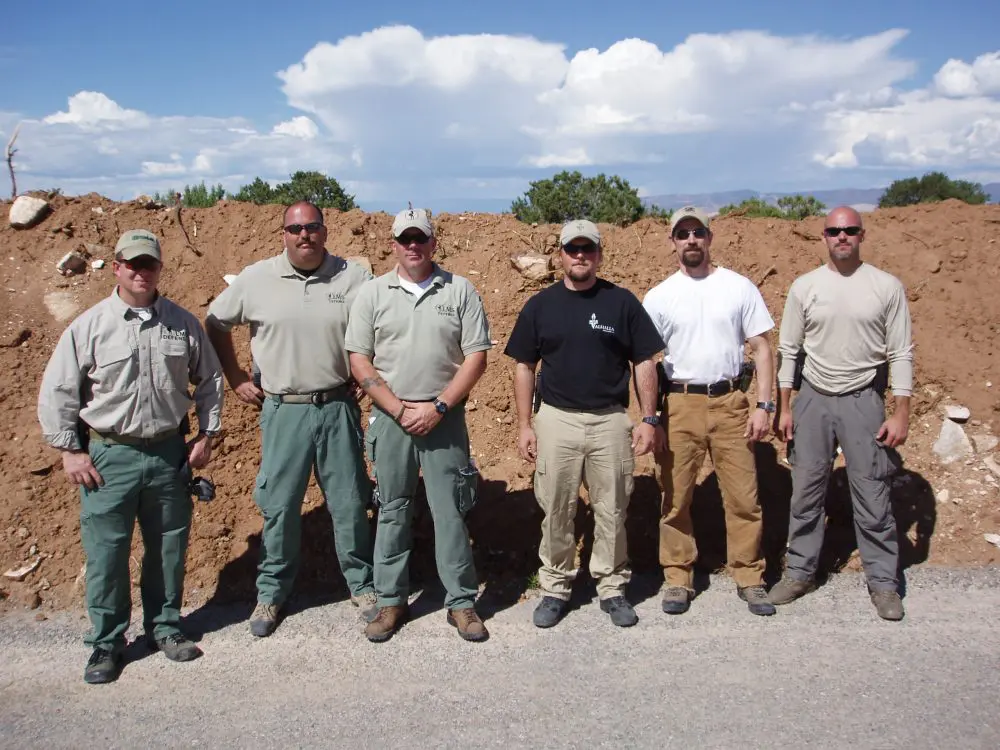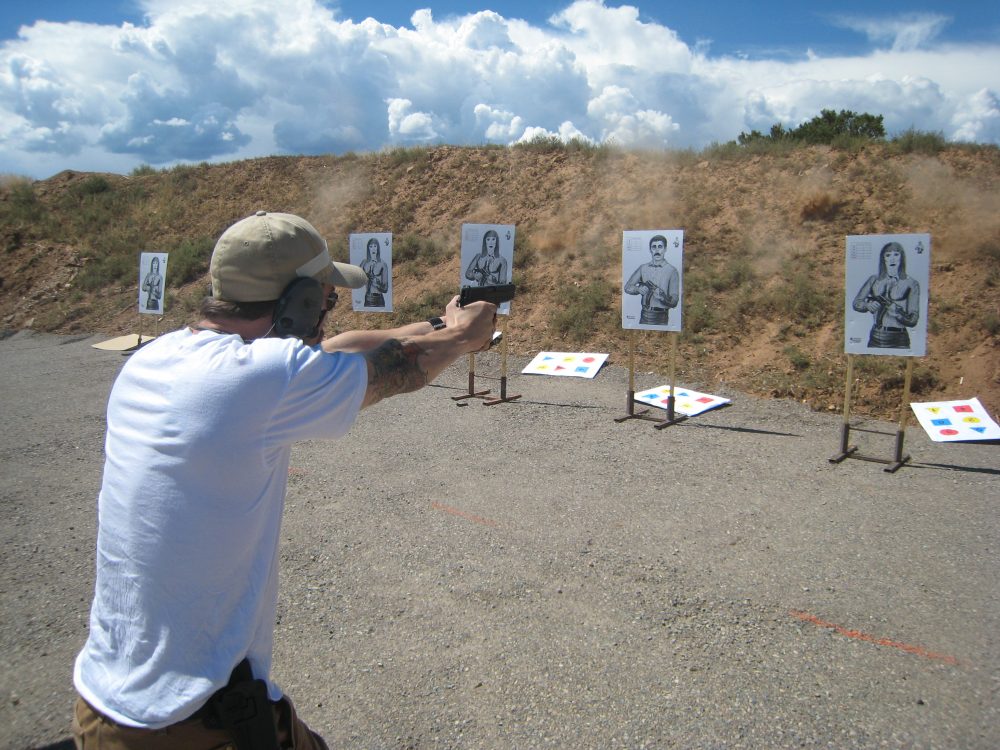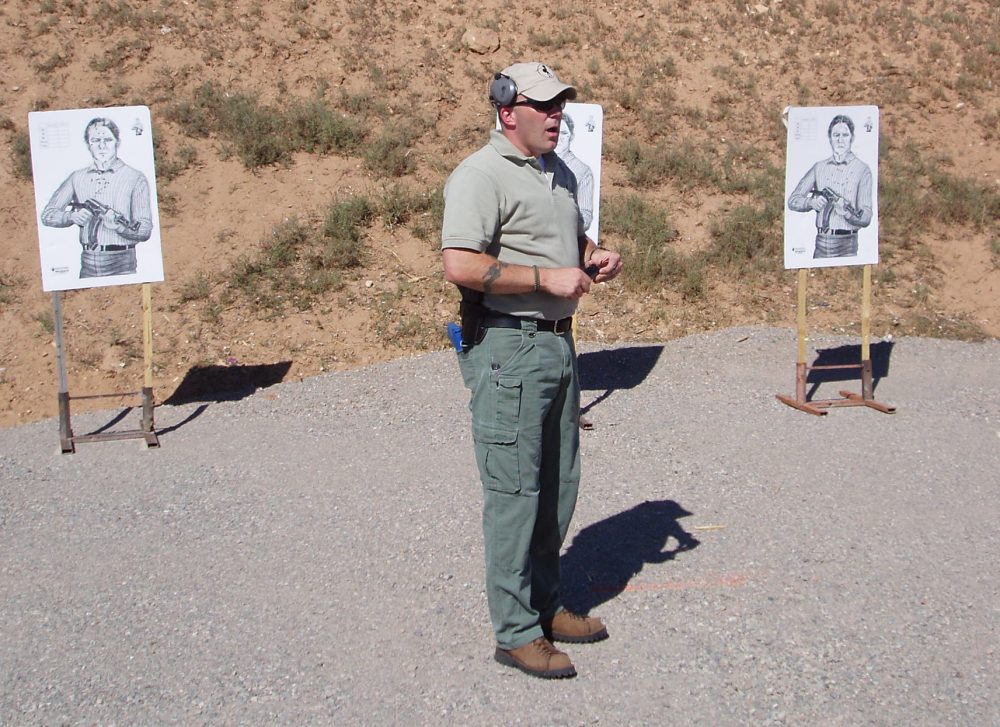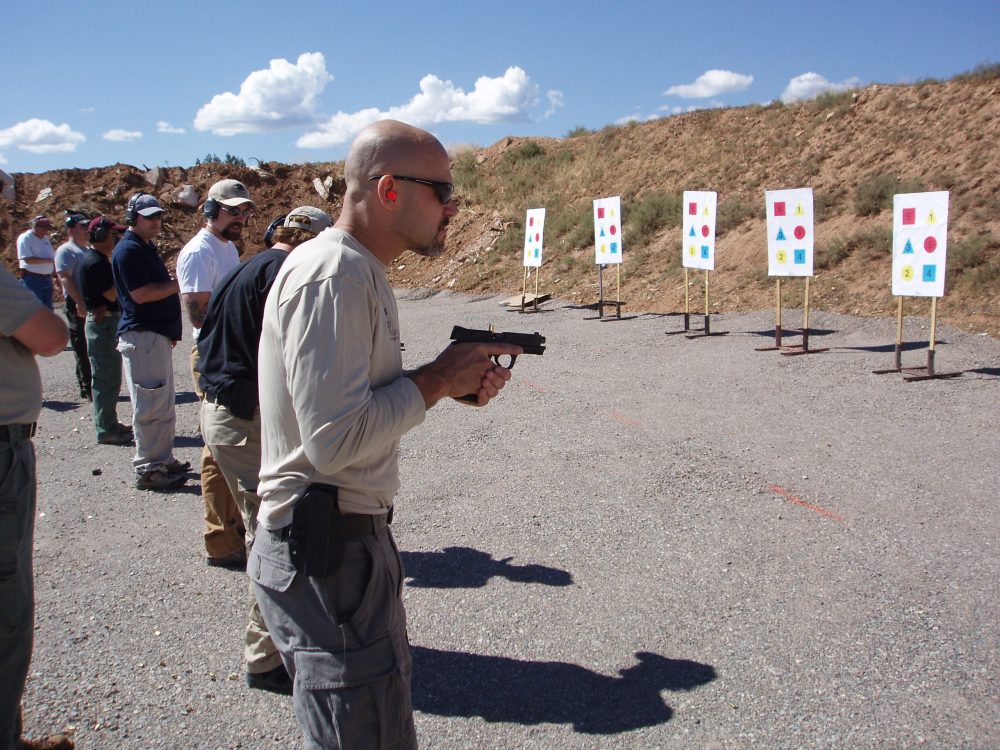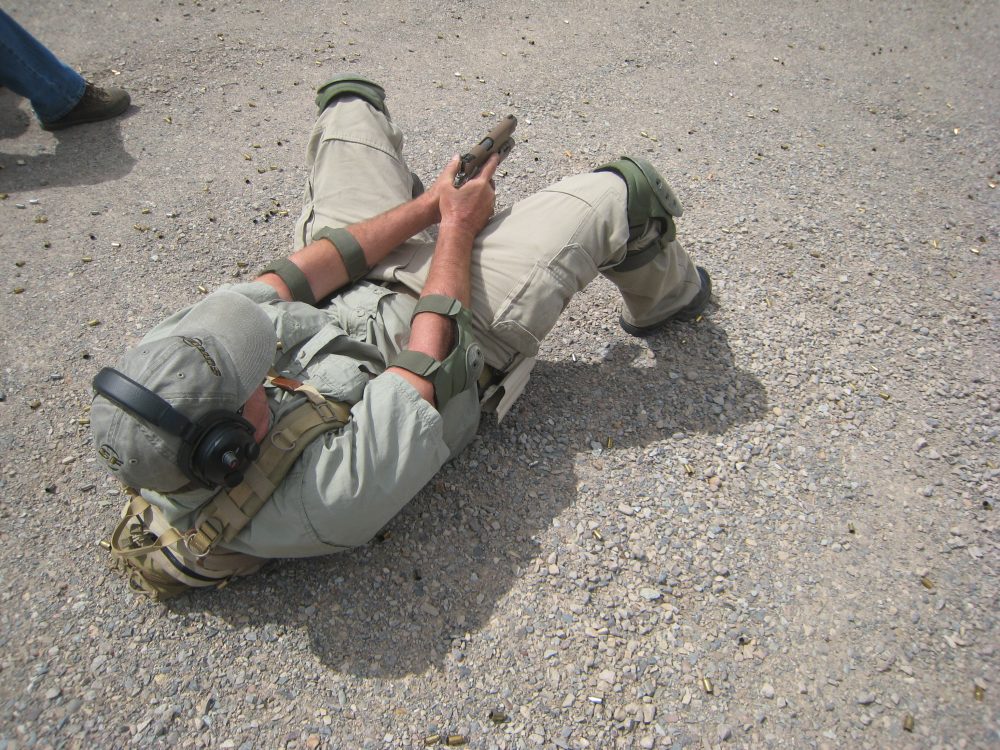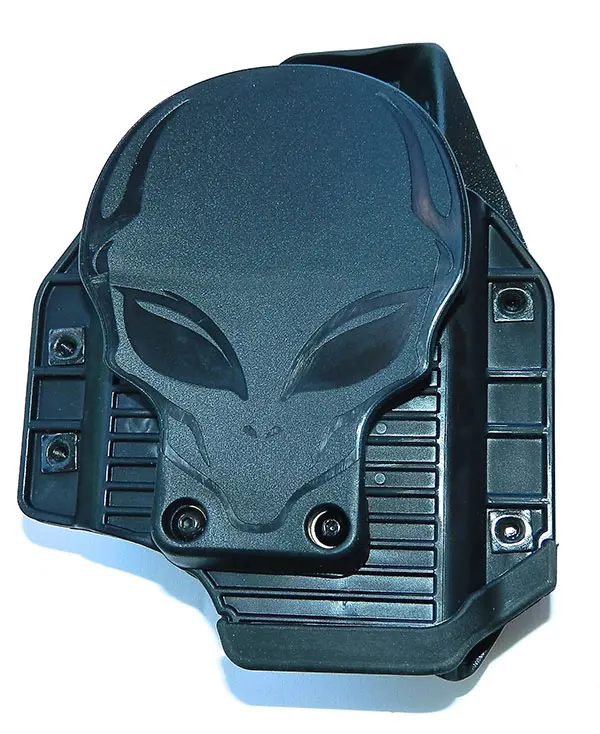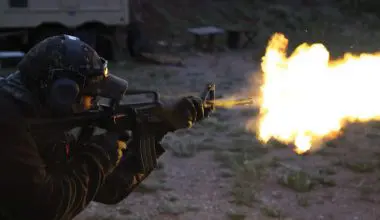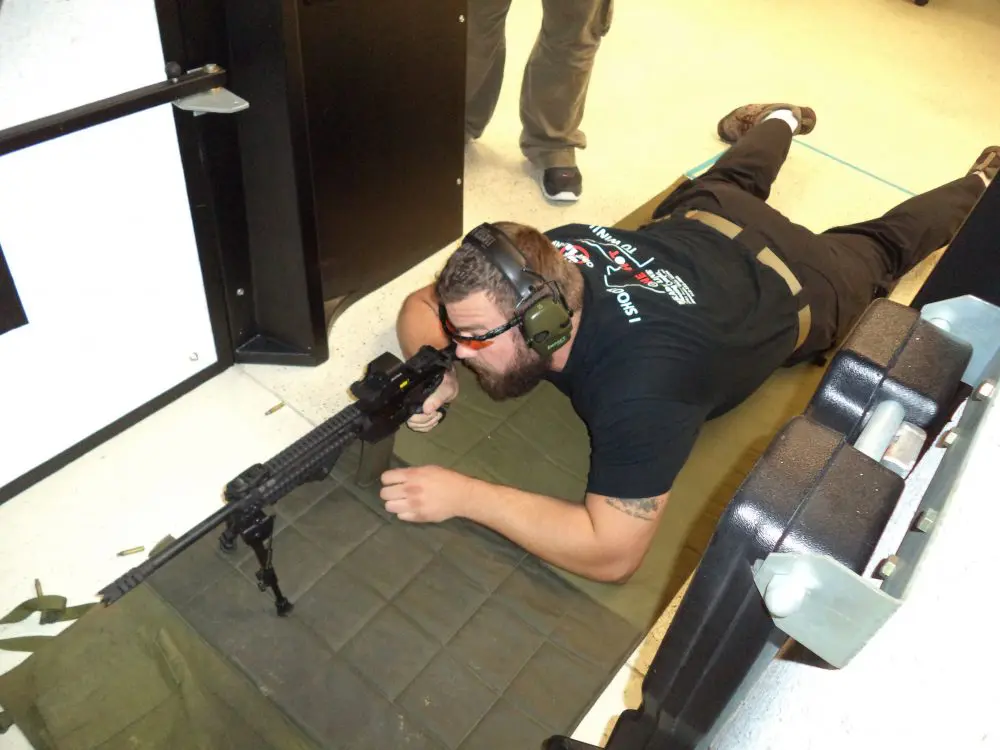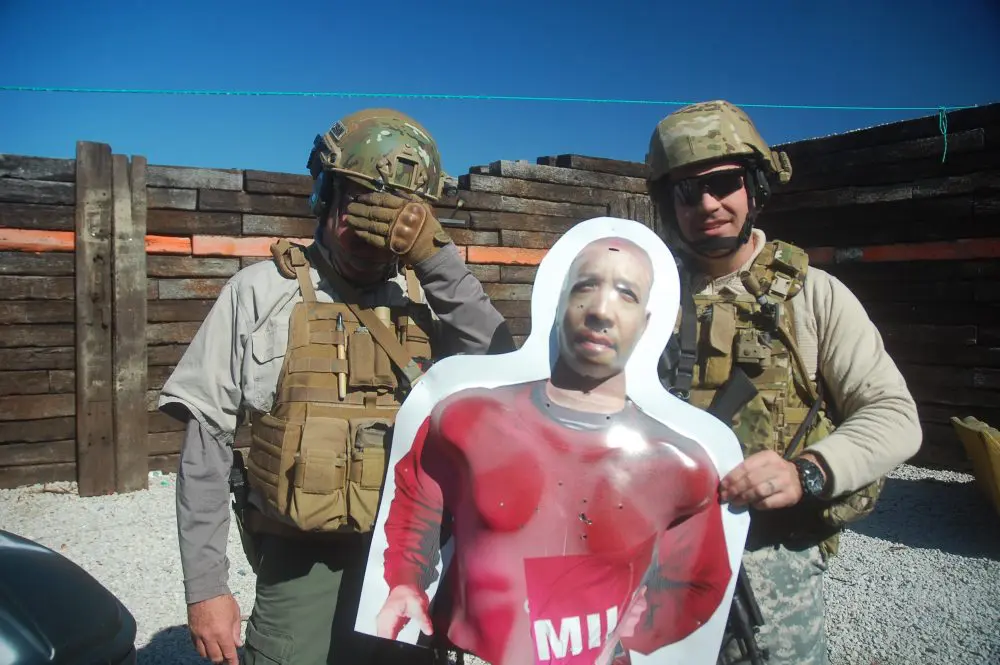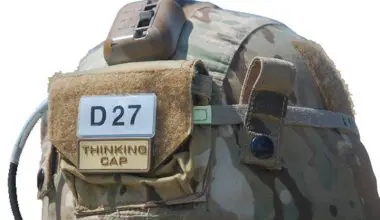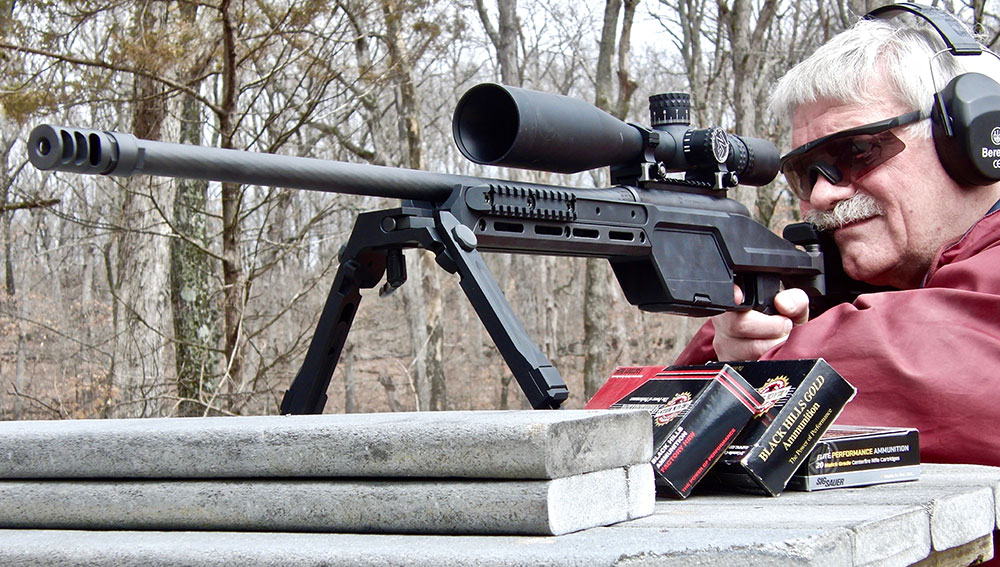Several months ago, Rob Pincus called and told me Valhalla Training Center was hosting LMS (Last Man Standing) Defense for four days of training. The idea was for the two schools to teach their curriculums and see what they could learn from each other and incorporate into their own courses. Intrigued by the idea of two schools sharing Tactics, Techniques and Procedures (TTPs), my son Flint and I made the necessary arrangements to attend.
Scheduled for the first two days was the LMS “Pistol 1” course, taught by LMS instructors John Chapman, Troy Price and Kevin W. at the San Juan Range in Montrose, Colorado. The following two days were to consist of the “Combat Focus” course, taught by Valhalla instructors Rob Pincus, Jeremiah Miles and John Brown at Valhalla’s home facility, also in Montrose.
Left to right: LMS Defense instructors Kevin W., John Chapman and Troy Price. Valhalla instructors Jeremiah Miles, John Brown and Rob Pincus.
Table of Contents
LMS DEFENSE
Day 1 began with a safety briefing. Every course I have ever been to has begun with a lecture on safety, and I for one hope that never changes. I have been to courses where fellow students have attended many courses, and watched them get a “here we go again” look on their faces during the safety brief. Don’t fall into this trap. The safety brief is important and is given for a reason.
Next, John “Chappy” Chapman went through the basics of drawstroke and stance, and explained why LMS teaches the Isosceles stance. I’m long in the tooth using the Weaver stance and knew right from the get-go that I would revert to the Weaver, and I did—a lot.
Being out of one’s personal comfort zone, however, is a good thing in training. The LMS staff was patient and told me I could continue to use the Weaver stance since I was so comfortable with it, but it did not make any sense to me to drive over 1,500 miles round trip to “do it the way I always have” and so I gave the “newfangled” Isosceles my best shot (no pun intended). What I ended up with was a not too effective stance combining a Weaver and Isosceles, which I’m sure hindered my shooting.
Valhalla instructor John Brown engages target from seven yards.
The first part of the day consisted mostly of numerous repetitions of the drawstroke and slow-fire drills. Accuracy was stressed over speed, and the phrase “aim small, miss small” was used repeatedly. While I’m sure this approach was beneficial to most of the class, I did not get the feeling that a balance between speed and precision was obtained. I have shot with Rob Pincus on several occasions, and I’m sure he had to hold himself back and slow down for many of the drills. Malfunction drills were also covered.
As Day ended and Day 2 began, it became clear that this was not “Pistol 1,” and this was later verified by Chapman and his staff. Many drills were more appropriate for students who have mastered the basic fundamentals, and included firing at targets from as far back as 50 yards, strong- and weak-hand only drills, moving off the line of attack while shooting, shooting while moving, and firing from different positions including prone, kneeling and supine.
LMS instructor Troy Price briefs class on goals of course.
The course was not physically challenging until the ending drill of Day 2. This drill consisted of a 75-yard sprint to the seven-yard line. After engaging the target and reholstering, the shooter sprinted back to the 50-yard line and fired from prone. This continued back and forth on the firing line, shooting from varying positions—some strong-hand only, and some weak-hand only.
One shooter (not a member of either instructor cadre) remarked to me, “Now I know what it feels like to be in combat.” Well, not really. While the drill did get the heart rate up and added some stress, it did not (for me anyway) simulate being in a gunfight—the chemical cocktail of adrenaline and endorphins being released into the bloodstream during a crisis simply did not kick in. Still, as a smoker and not in the best shape of my 52 years on this rock, I found the drill challenging and fun.
Rob Pincus has set up a “stove pipe” in preparation for a malfunction drill.
VALHALLA TRAINING
Due to our schedules, Flint and I were unfortunately only able to stay for half of Day 3 at Valhalla. During that short time, however, the differences in the two schools were obvious. Where “Pistol 1” stressed using the sights and getting precise shots, “Combat Focus” stressed not using the sights at close range, instead relying on stance, technique and muscle memory, and getting fast hits into an attacker’s torso. Flint has attended the “Combat Focus” instructor course and recommends it. I may make a trip to Colorado to take the entire course to see if it will improve my shooting.
Speed loads only were used to top off the pistol in either course. No tactical reloads were performed. This is a hotly debated issue among different tactical instructors, and each side has valid points. While probably a matter of my prior training, my personal belief is to speed load if still actively engaged, and tac load if not.
Hansen firing from supine.
Likewise, press checks were not performed. Faulty magazines or bad ammo aside, I have yet to rack the slide of a pistol and not chamber a round. Still, I believe in making double-damned sure my smoke pole has a round in the chamber if I’m expecting to shoot. I observed more than one participant get a “click” when he expected a “bang,” and a simple press check before the drill would have ensured a chambered cartridge and the desired result.
Overall, I think all participants came away with new TTPs they can use. Many shooting schools try so hard to avoid being dogmatic, they become victims of that which they criticize. Being open-minded, attending training from as many instructors as possible, and continuing to learn and expand skill sets should be what training is all about. Kudos to both organizations for giving the other a chance to show what works and what does not work.
SOURCES:
LMS Defense
Dept. S.W.A.T.
211 Salerno Road
Seaside, CA 93955
(831) 236-4690
www.lmsdefense.com
Valhalla Training Center
Dept. S.W.A.T.
97 Elk Walk
Montrose, CO 81401
(970) 252-4900
www.valhallatraining.com
